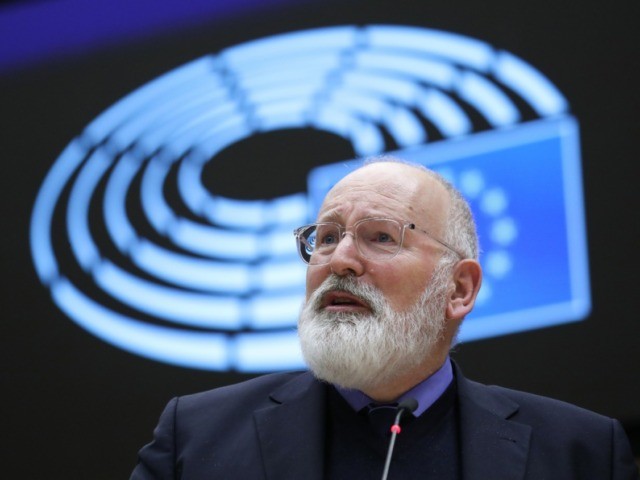The vice-president of the European Commission has written a lengthy love letter to the United Kingdom, in which he insists “we’re not going away” and invites Britain to rejoin the European Union in the future.
Published in the newspaper of choice for the British metropolitan left, The Guardian, Frans Timmerman’s 700-word paean to Britain’s membership of the European Union veers violently from the sentimental to the at times outright inappropriate.
The 58-year-old former Dutch foreign minister, despite embarking on his seasonal greeting by insisting how well he knows Britain and the British, possibly misjudged the nation’s appetite for unwanted displays of affection when he wrote: “I know you now. And I love you. For who you are and what you gave me. I’m like an old lover.”
Timmermans, who has served at the European Commission under both Jean-Claude Juncker and now Ursula von der Leyen, joined several other senior anti-British independence figures by expressing his hope that the UK would change its mind in the future. Clearly leaving the door open for Britain to rejoin the European Union, the EU VP wrote: “…I find comfort in the thought that family ties can never really be severed. We’re not going away and you will always be welcome to come back.”
While anti-Brexit campaigning by remainers in the United Kingdom may now pivot from cancelling the result of the 2016 referendum altogether to engineering a future reunion with the continental power bloc, given Britain leaving the EU in some form or another now seems all but certain, there is certainly good reason for the union to encourage such a move. Top Eurocrats have repeatedly expressed concern over the potential for the UK to become a trade competitor — a so-called Singapore-on-Thames — a reality which may be informing the bloc’s insistence the UK remain tied to their trade rules after leaving.
Germany’s Angela Merkel warned in October that a post-Brexit Britain could be a competitor to the EU akin to the United States or China, following earlier comments where she noted Britain as an “economic competitor” would leave the Union weaker. In December, France’s Emmanuel Macron warned London could be an “unfair competitor” in future.
The closer Britain remains to European Union rules post-Brexit, the less able the country will be to take major action to make itself more competitive on the world stage, and the easier a future reunion with the EU could potentially be.

COMMENTS
Please let us know if you're having issues with commenting.